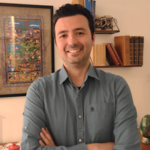Coding variants
NGS technologies have strongly improved our ability to detect coding variants but how to interpret them correctly?
Under this topic, we will go beyond the classic paradigm one gene-one disease and look at appropriate methods and workflows.
cryptic variants
Decoding the regulatory function of the non-coding genome is a multifaceted effort with contributions from many fields. Under this topic will will look at the identification and clinical interpretation of non-coding (e.g. regulatory) and cryptic (e.g deep-intronic and silent) variants in a clinical setting.
transcriptomics
About 20% of disease-causing variants have an impact on RNA expression. Clinical transcriptomics is therefore expected to improve the diagnostic rate of rare disorders by identifying allele-specific expression, splicing alterations and change in expression (over-, down- or mis-expression) of the causative gene/s.
Proteomics
Proteomics provides detailed information regarding the protein signature of cells or even complex tissue under a variety of conditions including health and disease. This approach enables a robust validation of the consequences of genomic/transcriptomics findings when needed and has been exploited to improve diagnostic yield in rare disorders.
About the School
Enjoy a different teaching and learning approach
Most offers in clinical genomics mainly focus on exome diagnostics. We intend to focus on the underlying widespread approach, clinical bioinformatics, and tackle its use in diagnostics across several disciplines: genomics, transcriptomics, proteomics.
General Objectives
In this course, we will investigate the value of genomics, transcriptomics, and proteomics in identifying DNA variants and ascertaining their consequences on RNA transcripts and proteins in a clinical context. The role of clinical bioinformatics can be seen as providing a link between computer science, biology and clinical medicine and so involves tools and technologies which require specific skills and expertise. This course will bring these methods and processes to real life using practical case studies.
Teaching and Learning Methods
The school has been designed around problem-solving learning: students are expected to be actively involved in each topic and understand how tools are used in daily clinical practice to solve actual questions. The school envisages a morning session with lectures on theoretical aspects applied to solved biomedical problems and an afternoon session with hands-on practice.
Target Audience
Successful diagnostics is the result of a team’s effort, where the most diverse expertise are integrated and professionals with different backgrounds find a common language. This Intensive School intends to build bridges between medical professionals and laboratory and bioinformatics professionals. We will help doctors understand how bioinformatics produces the results they can use for diagnostics, and we will help bioinformaticians understand the diagnostics process and the choices made in the clinic. This unique approach differentiates our proposal from other schools out there.
Registration fee
The school has two registration categories: a reduced fee for anyone affiliated to University of Pavia, and a full fee for anyone else.
Reduced fee
(University of Pavia)
150 euros
Full fee
(anyone)
180 euros
Organisers

Prof. Enza Maria Valente
Full Professor of Medical Genetics

Prof. Riccardo Bellazzi
Full Professor of Bioengineering and Biomedical Informatics
Co-organisers

Prof. Francesco Lescai
Associate Professor of Bioinformatics

Prof. Marco Lolicato
Associate Professor of Molecular Biology

Dr. Lorenzo Pasotti
Assistant Professor of Bioengineering and Bioinformatics

Dr. Elisa Giorgio
Assistant Professor of Medical Genetics

